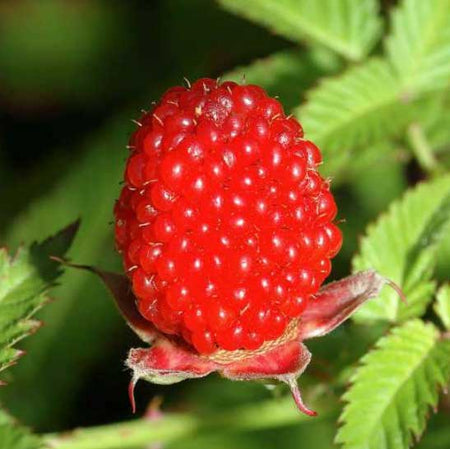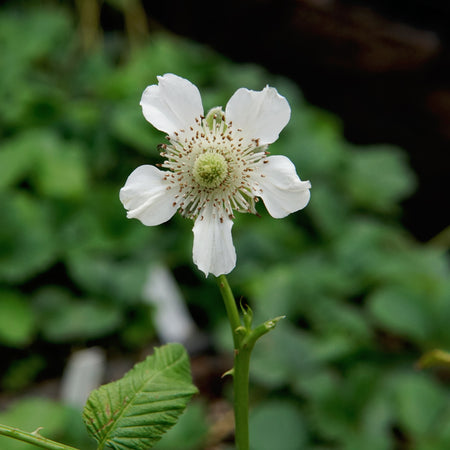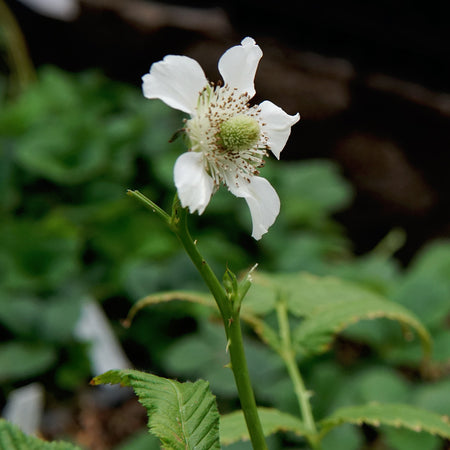FUNBERRY
Product Description:
Funberry plants are shipped mid to late April in 3 ½ inch pots. Order early for best availability. Detailed planting information and growing instructions are included with each order. Available only in the contiguous US.
| Plant Spacing | 2–3' |
| Plant height | 4–6' |
| Hardiness Zone | 4-9 |
| Bearing Age | 2 years |
| Ripening Time | Summer |
| Pollinator Required | No |
Rubus idaeus The versatile fruit of the raspberry is a real tasty treat whether eaten with your morning cereal, on top of your favorite cheesecake, or maybe best of all, by itself with just a bit of added sugar or stevia.
Site Selection
Choose a site that has full sunlight and fertile, loamy soils. Raspberries require good drainage, so avoid waterlogged areas. If the site has a drainage problem plant on a ridge or raised bed. It’s best to avoid a location where tomatoes, peppers, eggplants, or potatoes have been planted within the last 3 years.
Site Preparation
Prepare your planting site in early spring. The soil pH should be between 5.8 and 6.5. Choose a site with high organic content or add compost before planting. Work the soil to a depth of about 8 inches.
Planting
Prepare your soil and plant as early as spring permits. Plant spacing is 2-3 feet apart within the row and at least 5 feet between rows. Proper planting depth is 1-2 inches lower than the nursery soil line (dark brown line on cane). Dig holes that are large enough to prevent roots from crowding together. Place roots in hole and fill with soil. Pack firmly for good root and soil contact. Water the plants in well. Trellising your plants helps keep them manageable and healthy.
Fertilizer
Apply ½ cup of Territorial’s Complete Fertilizer to each hole at planting time. Subsequent years, ¼ pound of Territorial’s Complete around each plant in the spring (before growth starts) and again in May. Maintain good weed control. If using mechanical weed control do not work soil very deeply as raspberry roots are shallow.
Pruning
Pruning has a major impact on the production of quality raspberry fruit. It will affect growth rate, fruit number, size, and disease susceptibility. There are 2 types of plants: Summer-bearing and ever-bearing. The canes of both types are biennial, dying after their second year of growth. Summer bearing types will not fruit until the second year, so first year canes just produce leaves, and will bloom and fruit the following summer. Ever-bearing types will produce a heavy crop of fruit on first-year canes near the end of the season and another, lighter crop on the same canes the following summer.
Some gardeners prefer to allow their plants to produce the first, bigger crop on first-year canes. Cut all the canes to the ground in early spring when the plants are still dormant. If you’d rather allow the canes to produce their second harvest, you’ll need to leave the first-year canes intact after they have yielded their harvest. Cut the second-year canes to the ground after they have produced their early summer crop.
Soil Type
Raspberries prefer moist, slightly acidic (approximately 5.6-6.2 pH), well-draining soil rich in organic matter. Peat moss, sawdust and composted oak leaves are good amendments to add humus and lower the pH of the soil.
Pests & Diseases
Cover plants with Bird Block Netting if birds are a problem, otherwise raspberries are generally pest and disease free.
Pollination
Raspberries are self-fertile
Light Requirements
Full sun







